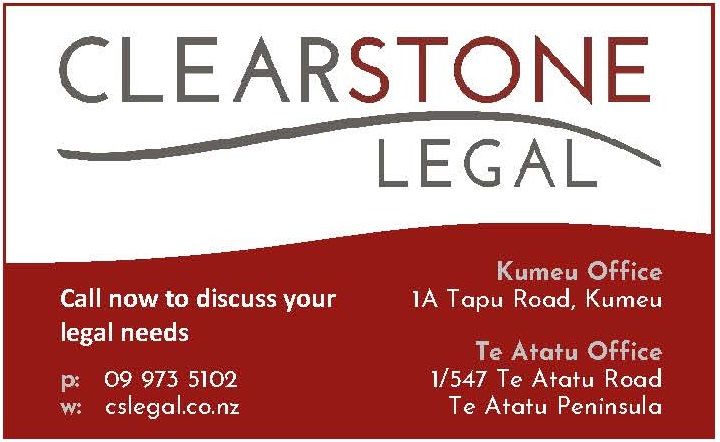Legal
Probate – what is it and why is it needed?

By Elyse Crowther of ClearStone Legal
A loved one passing away is a difficult and stressful time, and often the process that follows can be overwhelming and confusing. If that person had a Will and has assets worth over $15,000.00, then you will need to apply to the High Court for probate. Probate means “to prove”, and essentially is the process of proving the Will before the Court. Probate is required before the assets of the estate can be called in.
The Executor/s named in the Will are the parties who need to apply for probate. A Solicitor can prepare the required documents which include an application, an affidavit by the Executor/s and the probate itself. There are very specific requirements for these documents, and the original Will and certified copy of the death certificate are required to prepare them. The Executors will need to swear or affirm the affidavit with the Solicitor before they can be sent to the Court.
Additional documents will be required if any of the Executors want to renounce their role, or if the original Will has been lost or looks like it may have been tampered with – for example a staple being removed, or marks left by a paper clip.
Once received by the Court there can be delays in processing, currently we are seeing up to four months for a probate application to be reviewed and often the Court comes back asking for changes or more documents. Once probate is received, the Executors will be able to deal with the estate assets, including calling in Kiwisaver funds, insurance policies, transferring property and obtaining funds from the deceased bank accounts.
Distribution of the estate can take place six months after probate is received, so when you factor in the Courts processing time it can be a lengthy process. If the assets of the estate are less than $15,000, probate is not required. If the deceased did not have a Will, then a similar process is required, but instead of probate you must apply for letters of administration.
Whatever the position, we can guide you through the process. When you are ready, give us a call on 09 973 5102 or make a time to come and see us at either our Kumeu or Te Atatu office.
Who stays in the family home if we separate?

It has been over a year since the tragic floods in Auckland in 2023. Since then, New Zealand has still experienced severe weather patterns throughout the country. Before buying a property, it is essential to conduct thorough research on the area’s history of flooding. This can be done by checking with local councils to see if the property is situated in a flood-prone zone or if it has ever been affected by flooding in the past. It is also advisable to check with other residents in the area as to the likelihood and severity of this happening.
It is equally important to consider the type of flooding that may occur in the area. Some regions are more prone to river or coastal flooding, while others may be at risk of flash floods caused by heavy rainfall. Understanding the type of flooding that may affect a property can help in making informed decisions about its suitability. A flood path might run directly through the property or may affect the roads accessing the property to the extent that getting in and out of the property may be difficult.
Potential buyers should also consider the insurance implications of buying a house in a flood-prone area. Insurance premiums for homes in high-risk areas may be significantly higher, and in some cases, insurance may not be available at all.
Overall, being aware of flooding issues is crucial when buying a house. By doing thorough research and seeking professional advice, buyers can make informed decisions about the suitability and potential risks of a property before making a purchase. If you are looking to buy or sell a property and are wanting more information on this or any other legal issues you can contact Kemp Barristers & Solicitors at info@kempsolicitors.co.nz or 09 412 6000.
Are you buying an uninsurable property?
The Law Society is warning some property buyers are losing their deposits after unknowingly entering agreements on flood-damaged houses.
There has been an increase of people entering into legally binding Sales and Purchase contracts, only to find their bank will no longer give them the mortgage, because the house is uninsurable. This could be because an owner received insurance money but may not have actually used the money to fix their house.
Home buyers should therefore be warned about unknowingly entering into agreements to purchase flood-damaged properties in regions affected by last year’s storms and cyclone.
Therefore, buyers are advised to investigate the availability of insurance cover with their insurer before committing to an agreement. If you are looking to buy or sell a property and are wanting more information on this or any other legal issues you can contact Kemp Barristers & Solicitors at info@kempsolicitors.co.nz or 09 412 6000.
























